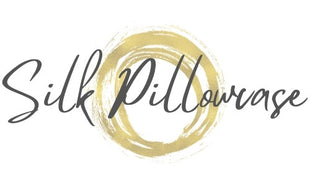Does silk really help your skin?
Skin experts agree that silk really can soothe inflamed or irritated skin. The reason for this is the incredible smoothness of pure silk.
As flakes of skin, spots and other signs of irritation don’t catch on the surface of silk so easily, you can wake up with calmer, more moisturised skin.
There’s more. Any products you use overnight to soothe your skin aren’t absorbed by silk in the way that they are with cotton or other fabrics, leaving them in place for the full effect.
Many of those with conditions like acne, eczema, psoriasis and sensitive skin love sleeping on silk and would never go back.
Does silk make hair greasy?
Though silk can help to retain natural and added moisture in hair and skin, it’s actually good for controlling greasy hair. As less moisture is lost, the glands aren’t stimulated into over-production, which is actually a common cause of greasy hair (and skin).
Is silk antibacterial?
Silk is indeed an antibacterial material. This means a silk stays cleaner than one made from other fabrics - and you can get away with washing it less often if you want to.
Silk fabric is also densely woven, so this means that nasties like bed mites cannot penetrate its surface. Another benefit of sleeping on silk is that it is good for helping acne.
The silk does not hold any dirt like cotton so nothing gets rubbed in to the skin.
